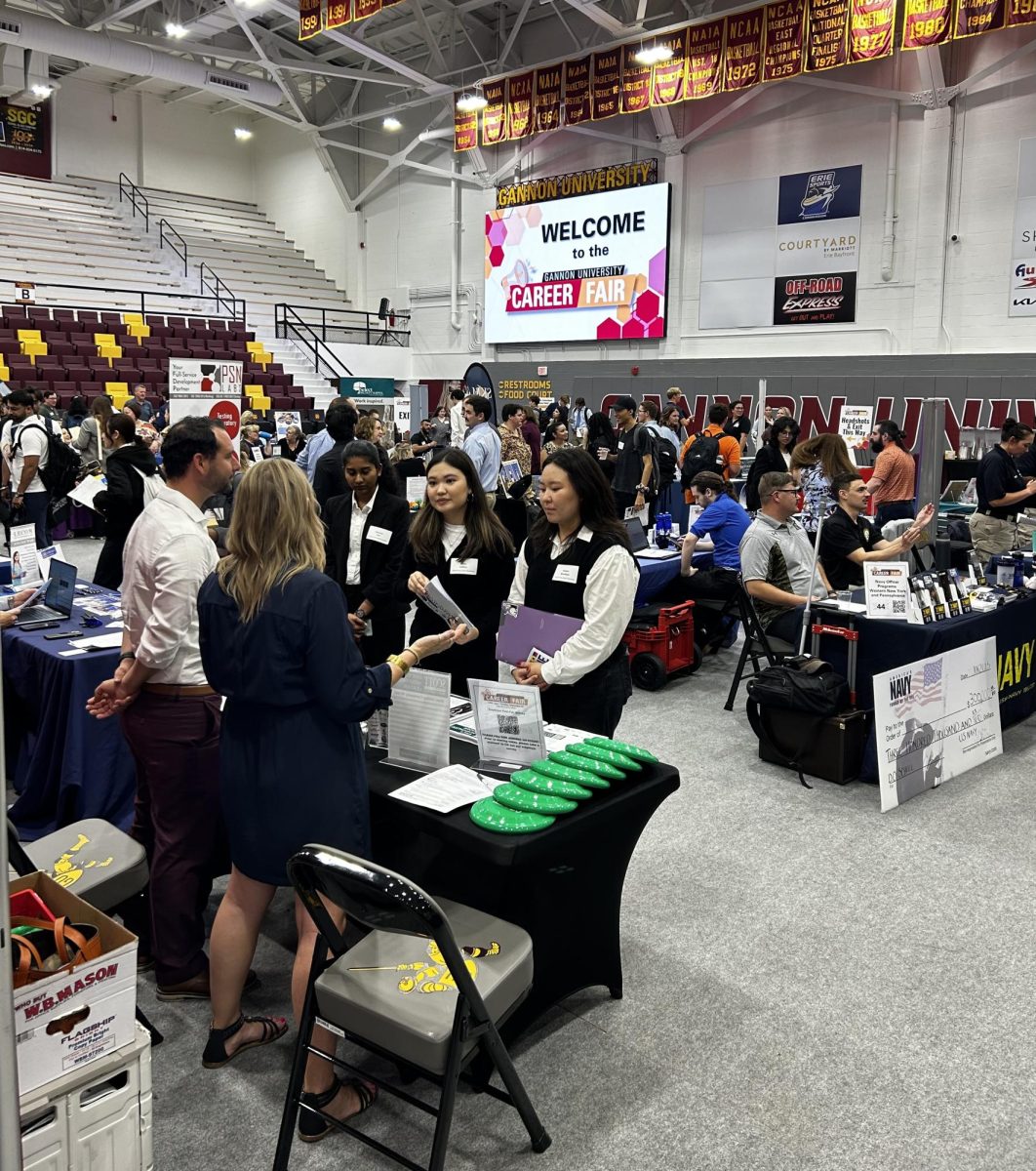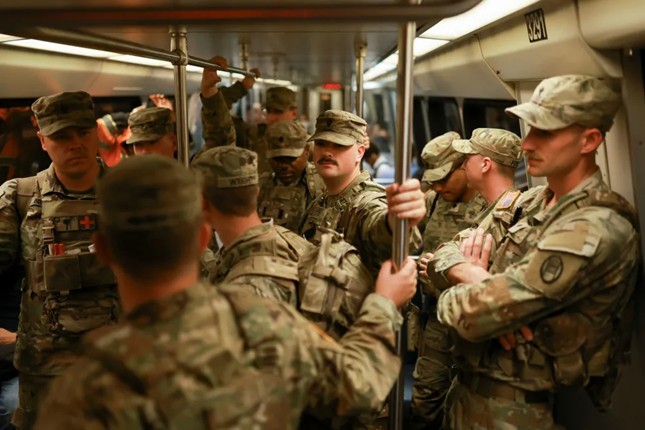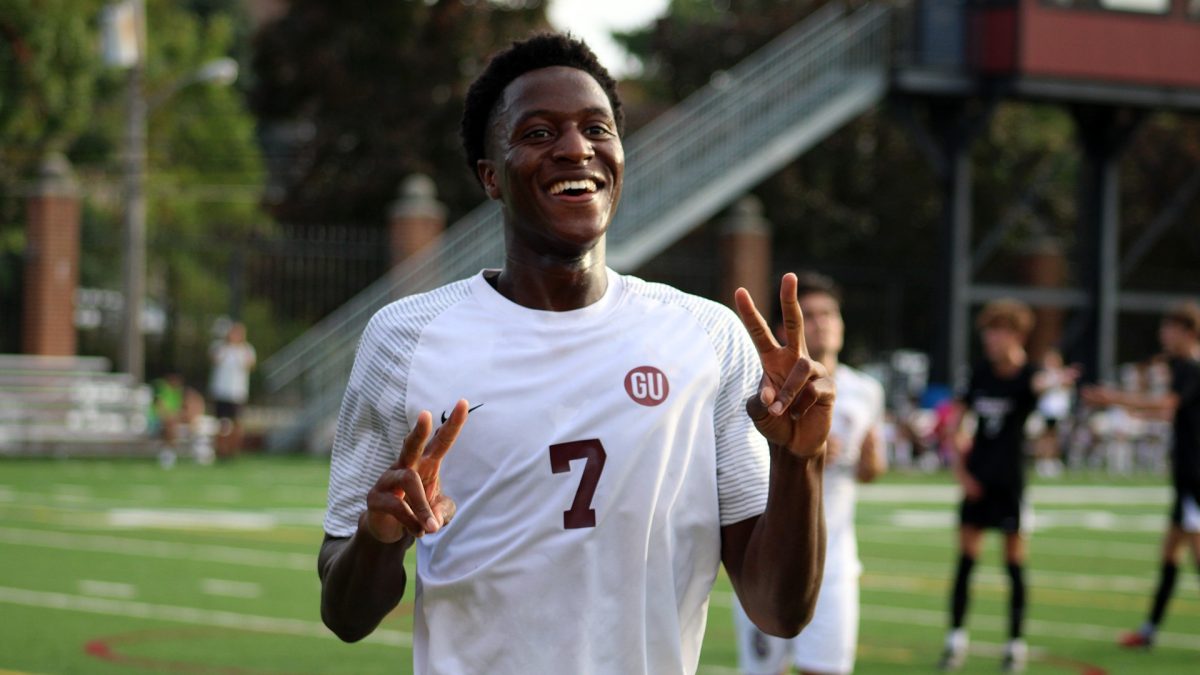By SAMANTHA GRISWOLD
managing editor, news
ALEXANDRIA BROWN
staff writer
In the 2 1/2 weeks since Donald Trump was sworn in as the 45th president of the United States, he has signed 22 executive actions pertaining to a variety of issues like Wall Street regulations, defeating ISIS and building a wall between the border of Mexico and the United States.
The order that was signed Jan. 27, which suspended immigrants and refugees from seven nations from entering the U.S. for at least 90 days, has sparked much controversy.
Under the executive order, citizens from Iraq, Sudan, Iran, Syria, Somalia, Libya and Yemen are banned from entering the U.S. under any visa category. All refugees awaiting resettlement are barred from entering the country for 120 days and Syrian refugees have been barred indefinitely.
Originally this ban also included permanent residents of the U.S., or green-card holders, though the Department of Homeland Security advised that permanent residents be omitted from the order.
The order has received much backlash around the country and even around the world as travelers who had previously been issued visas were detained at airports.
Several big tech companies – including Apple, Microsoft, Facebook and Google – have expressed their discontent with the order and have filed a joint court brief opposing the immigration ban.
The brief is a show of support of a lawsuit filed last Monday by Washington state Attorney General Bob Ferguson, which asked that key provisions of the executive order be declared unconstitutional.
The travel ban was lifted when a temporary restraining order was granted Friday by U.S. District Judge James Robart.
The case made its way Tuesday in front of a three-judge federal appeals panel in the United States Court of Appeals for the Ninth Circuit, which will determine whether the temporary restraining order should stay in place while the case proceeds.
According to an article in the New York Times, a ruling did not come down Tuesday, but is expected to come later this week.
In response to this executive order, Gannon University international students have expressed concern, according to Carol Knoble, director for Global Support and Student Engagement at the university.
“[The students] are really, really nervous,” Knoble said. “Most of our international students really do believe this is about being Muslim more than it is about anything else.”
Knoble said that one of the reasons why Gannon’s international student population is so worried is because of the use of the word terrorist when talking about national security, though no immigrants from the seven listed countries have ever perpetrated attacks on the United States.
“It raises a lot of questions for them,” Knoble said. “They’re very concerned.”
Brenon Joseph, a senior student from the U.S. Virgin Islands, said that he thinks it’s interesting that the specified countries were chosen.
“It’s intriguing that the banned countries have had no terrorist attacks in America,” he said. “There are other countries affecting us and if Trump wanted to protect America, then he would focus on domestic issues such as crime rates in our cities and school shootings.”
Prakash Subba, a sophomore Gannon student, echoed Knoble’s assertion that students feel the ban is about being Muslim.
“[Students] already feel insecure here away from their families and homes,” he said. “Completely banning people is racist and discrimination. Not all Muslims are terrorists.
“America is supposed to be welcoming. Trump should think about the people affected by the war they have nothing to do with. They want to come here to have a life.”
Knoble said that students have told her very personal stories about their experiences, such as a student whose wife has been working for a year to come to America, but now isn’t sure if she will be able to use her visa to come, and students who are graduating in May who don’t know if their parents will be able to attend their graduation.
“They can’t go home and that’s terrifying,” Knoble said. “These are things that are very real to them.”
Tejita Rajbhandari, a freshman international management major from Nepal, said that she won’t be able to visit her family over break anymore because of this ban.
“I was ordering my [plane] ticket, but suddenly I heard the news of a ban and I had to tell my parents,” Rajbhandari said. “It was heartbreaking for me and my parents are worried and told me not to come because they’re afraid I wouldn’t be able to come back.”
Grishma Dangol, a freshman international management major from Nepal, said that she empathizes with other international students because she knows how it feels to leave home.
“If we plan to return home, we fear we won’t be able to enter back,” Dangol said. “I know how my parents would feel in an airport if they were detained and they are more scared than me.”
Dangol also said that she worries while she’s here at school because her parents are concerned about what will happen with her education if she can’t come back or if they can’t come visit her.
Knoble also said that she has had students come into her office and tell her that they feel like they should just leave now. She said that their thought process is “If I’m not safe in the U.S., then why am I here?”
Knoble also said that in general, the parents don’t call because many of them don’t speak English, but students tell her that their families are terrified and really nervous about them being in a different country.
“It’s really hard for [students] to understand why they aren’t being treated as individuals,” she said. “Just like we separate the government from the people, they do the same to us. They recognize that most Americans are not our president or not our government and yet they get lumped into all of this.”
Knoble said that they want students to stay informed and not believe everything they hear.
“One of the things our students ask from us is for accurate information,” she said. “We need to know what’s really happening and what’s a rumor. I think helping people with information is key.”
Puja Dhaduk, a sophomore, said that she also thinks a lack of correct information also contributes to the confusion.
“I feel like people who talk about the immigration and refugee bans have ideas that stem from ignorance,” she said. “When people hear about Trump on the news, they don’t know about what’s going on in our country or the facts about what Trump is doing.”
Knoble also pointed out that not a lot of people realize how much of a vetting process already happens for immigrants to the United States.
“Even in the fall at airports, our students from certain countries were harassed and targeted,” she said. “Their phones and computers were being taken because they wanted to see who they were talking to on social media.
“Some students said over the summer when they got their visa interviews, they were asked questions like ‘who do you know in ISIS?’ And these are 18-year-olds thinking ‘I’m going to school in America. Why are you asking me this?’ So they’ve already felt the stress way before this ever happened. I don’t think a lot of people realize that there has been tension building.”
Knoble also said that she thinks the executive order is a bit deceptive to people who might not be otherwise educated about the immigration laws already in place.
“The whole point [of the order] was the thought that ‘we need policies in place. We need to vet people.’ Well, we’ve already been vetting people.”
She said that most international students have been planning to come to America for a year, if not two and that they’ve provided so many documents to prove they are who they say they are and that they’re sincere about going to school.
“They have to go through so much to get here, so to say that there’s no process or that no one has screened these people is really misleading,” she said.
Knoble said that she thinks that more conversation and intentional interactions will take place on campus to bring domestic and international students together, but not as a reaction to the ban, rather because that’s the direction that we are heading.
“We have a new strategic plan out and global initiative and interaction is a part of that,” Knoble said.
“I think the whole campus is focused on integrating international students, getting American students to interact with them and building the bridges between them.
“We recognize that everybody needs global skills.”
Knoble said that while there is a lot of uncertainty surrounding this issue, the main focus for Gannon is the students.
“On an individual basis, our goal is taking care of our students,” she said.
“We don’t have a lot of influence over policies, but we have the ability to interpret for the campus what they mean.”
SAMANTHA GRISWOLD
[email protected]
ALEXANDRIA BROWN
[email protected]













thuytinhvokhoc12 • Feb 12, 2017 at 10:16 pm
good^^<3 https://baocaosuhome.com/gel-boi-tron
thuytinhvokhoc12 • Feb 12, 2017 at 8:19 am
I really do not like this man https://baocaosuhome.com/bao-cao-su-sieu-mong%E2%80%9D